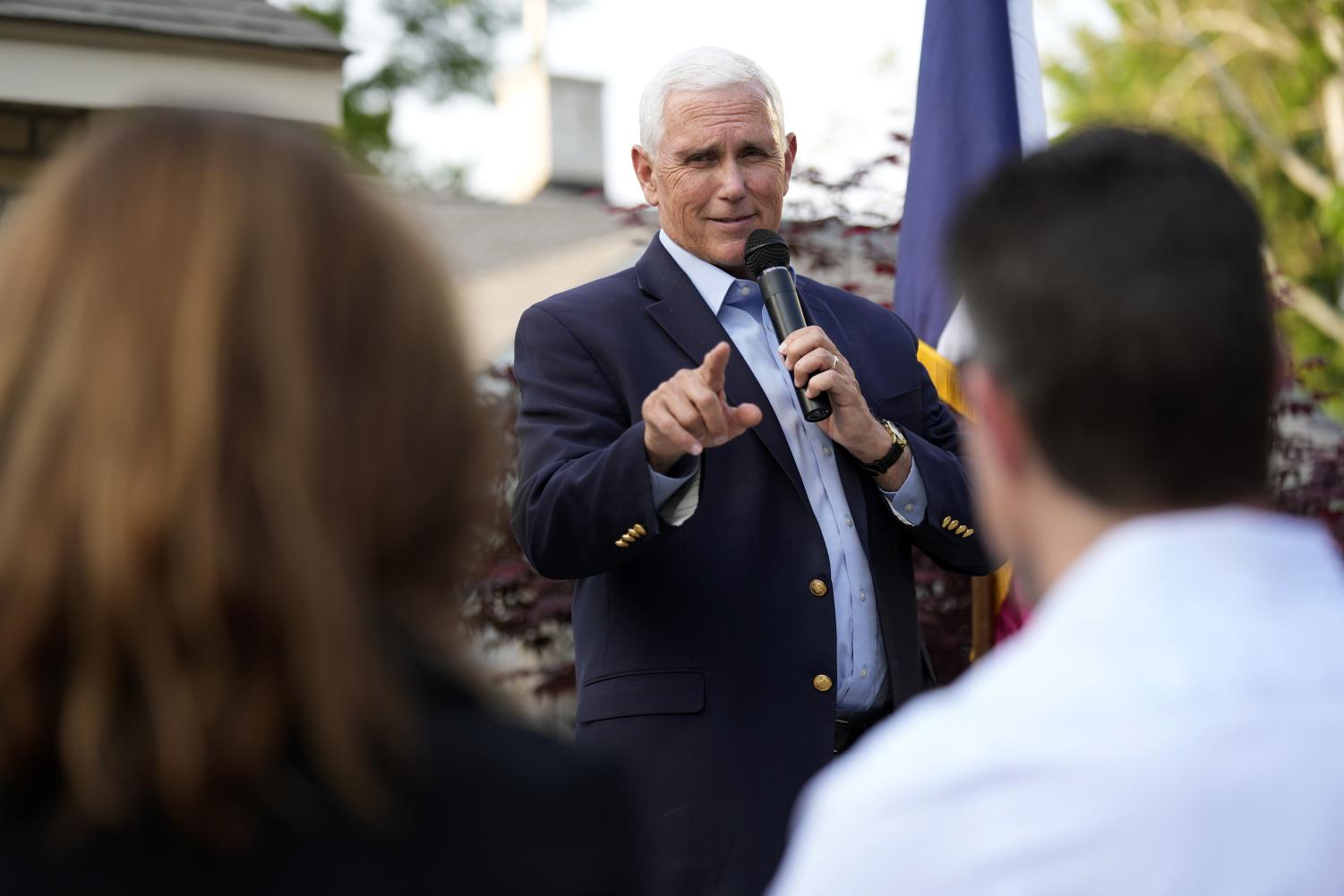NEW YORK — Former Vice President Mike Pence will officially launch his campaign for the Republican nomination for president in Iowa next week, putting him in direct competition with his former boss.
Pence will hold a kickoff event in Des Moines on June 7, the date of his 64th birthday, according to two people familiar with his plans who spoke on condition of anonymity to share details ahead of the official announcement. He is also expected to release a video message as part of the launch.
His team sees early-voting Iowa as critical to his potential path to victory and advisers say he plans to campaign aggressively for the conservative, evangelical Christian voters who make up a substantial portion of the state’s Republican electorate. Pence is an avowed social conservative and is staunchly opposed to abortion rights, favoring a national ban.
The campaign is expected to lean heavily on town halls and retail stops aimed at showcasing Pence’s personality as he tries to emerge from former President Donald Trump’s shadow.
Pence, who served in Congress and as Indiana’s governor before he was tapped as Trump’s running mate in 2016, had been an exceedingly loyal vice president until he broke with Trump over the 2020 election.
Trump, desperate to overturn his loss and remain in power, had tried to convince Pence — and his supporters — that Pence could somehow reject voters’ will as he presided over the ceremonial counting of the electoral college votes on Jan. 6, 2021, even though the vice president has no such power. As the count was underway, a violent mob of Trump’s supporters stormed the building, smashing through windows, assailing police and sending Pence, his family and his staff, racing for cover as members of the mob chanted “Hang Mike Pence!”
Pence has said Trump’s “reckless words” endangered his family and everyone else who was at the Capitol that day. He has said “history will hold Donald Trump accountable.”
“For four years, we had a close working relationship. It did not end well,” Pence wrote in his book, “So Help Me God.”
Pence has spent the two-and-a-half years since then strategically distancing himself from Trump as he has laid the groundwork for the campaign. While he consistently praises the record of the “Trump-Pence administration,” he has also stressed differences between the two men, on both policy and style.
He has called on his party to move on from Trump’s election grievances and warned against the growing tide of populism in the Republican Party. He admonished “Putin apologists” unwilling to stand up to the Russian leader over his assault on Ukraine in response to comments from Trump and Florida Gov. Ron DeSantis, who is running a distant second to Trump in the polls.
He has also argued in favor of reforms to programs like Social Security and Medicare — which both Trump and DeSantis have vowed not to touch — and criticized DeSantis for his escalating feud with Disney.
Pence also testified last month before a federal grand jury investigating efforts by Trump and his allies to overturn the results of the 2020 election. He has spent months visiting early-voting states, delivering policy speeches, speaking at churches and courting donors ahead of his expected run.
The week will be a busy one for GOP announcements. Former New Jersey Gov. Chris Christie is planning to launch his campaign Tuesday evening at a town hall event in New Hampshire and North Dakota Gov. Doug Burgum will announce on June 7 in Fargo.
